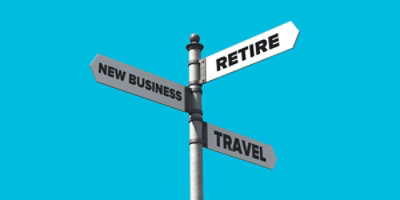-
Business Banking -
Insights
What is a Business Line of Credit?
A business line of credit, can be an ideal solution for businesses that need cash flow. It is a flexible funding solution that can help business owners meet their needs for capital as their companies change and grow over time.
There are a number of benefits offered by a business line of credit. For example, a line of credit allows the business to have ready access to capital when needed.
When revenue is down or customers are slow to pay, a business line of credit can make it possible for business owners to secure funds quickly to cover expenses.
A business line of credit can be an important tool for covering short-term financial needs such as:
- An unexpected expense.
- Payroll.
- Supplier fees.
- Increasing inventory.
How Does a Business Line of Credit Work?
When you open a business line of credit with a financial institution, your business gets access to an agreed-upon amount of funds, which you can use as needed. You might access the funds through checks, or you may be able to make transfers from the line of credit directly into your business bank account.
When you start using the funds, you will be required to make interest and/or principal payments, usually on a monthly or weekly basis, depending on your lender. You will have to pay interest and/or principal only on the funds you've used. When you repay the funds you've used, the line of credit will be replenished for you to use again as needed.
In addition to a regular periodic payment, you may also have to pay an annual fee for the business line of credit. Most business lines of credit are what is called "revolving." This means that an account holder can borrow money repeatedly up to a set dollar amount while repaying a portion of their balance in regular payments.
Unsecured vs Secured Business Lines of Credit
A business line of credit may be offered on either a secured or unsecured basis. If it's secured, that means the business owner has offered collateral such as personal property or other assets as security for repayment of the debt. If the business fails to repay the debt, the lender can foreclose on the collateral. If the line of credit is unsecured, that means the borrower does not need to put up collateral.
If you need a line of credit that's larger, you may have to secure the debt with collateral. A secured line of credit can usually offer a higher credit limit, lower interest rate, and more lenient repayment terms. However, you'll also be taking on more risk: If something goes wrong and you're unable to repay your line of credit according to the terms, your lender will be able to foreclose on collateral.
If your business has a solid earnings record, you may be able to qualify for an unsecured line of credit. Usually, an unsecured line of credit will come with a variable interest rate and may provide access to cash up to a certain amount. A lender may not allow you to use an unsecured credit line to finance large project, but it may be a good funding option for smaller expenses or emergency cash flow.
Collateral for a Business Line of Credit
Providing collateral for a business line of credit can help you get a lower interest rate and better repayment terms. However, it's important to make sure you will be able to repay the line of credit according to the agreed-upon terms in order to preserve your collateral.
If you are confident in the future performance of your business and willing to take the risk, putting up collateral for a secured line of credit may be a good idea. Doing so may allow you to access more cash to undertake larger projects and maximize your business's revenue potential.
What can be used as collateral for a business line of credit? Almost any type of asset can be used as collateral.
Some of the most common types of collateral for a business line of credit include:
- Cash
- Securities
- Real estate
- Business equipment
- Business inventory
- Vehicles
You can also use a blanket lien, which is a lien that gives a lender a legal interest in all of your assets serving as collateral. Blanket liens provide maximum protection to lenders in the event of nonpayment.
Things to Consider When Opening a Business Line of Credit
Different lenders have different requirements for opening and repaying business lines of credit. Before choosing the line of credit for your business, it's a good idea to make sure you understand the following:
Terms
Find out how often your payments will be due and how long your line of credit will be available. If there's a possibility of renewing the line of credit after it expires, find out how to do that. Also, learn whether regular withdrawals (called "draws") are required and if there is a limit to the number of withdrawals you can make each month or quarter.
Credit Requirements
Lender will have specific credit requirements for their business lines of credit, so find out the specifics from the lender you're considering. Many lenders require a business to be in operation for more than one or two years, with a minimum of $100,000 in annual revenue. They may also require a personal credit score from the business owner and a copy of a detailed business plan.
Fees
Business lines of credits can come with various fees. Find out whether the product you're considering includes fees and if so, how much they are.
Interest Rates
Learn whether the interest rate is fixed or variable for the line of credit you're considering. Calculate how much you can expect to pay in interest when you use the line for expected needs.
Repayment Terms
Find out how much time you'll have to repay the line of credit when you use the funds. Some lenders require weekly payments, while others allow monthly payments or payments on a more flexible schedule.
Is a Business Line of Credit the Same as a Loan?
A business line of credit is similar to a business loan, but they are not the same thing. With a business loan, you receive a lump sum all at once, and your monthly payments include both interest and principal.
Unlike a loan, a business line of credit allows you to use funds only when you need them, and you are only required to make periodic payments on the amount that you use. When you've repaid the used funds, the line of credit is replenished, and the funds remain available for you to use again as needed.
Will a Business Line of Credit Impact My Credit Score?
In many cases, a lender may obtain a business owner's authorization to get a credit report when the business applies for a business line of credit. A new credit inquiry can have a temporary effect on your credit score.
Beyond that, the impact of a business line of credit on your personal credit score will depend on the structure of your business. If your business is a sole proprietorship, for example, the company's financial information is not separate from your personal financial information. Your personal Social Security number will be needed to open a line of credit, which will tie the line of credit to your personal credit report.
If your business is an LLC or corporation, you can use the business tax identification number to apply for a business line of credit, keeping it separate from your personal financial information. Your credit score could be slightly impacted by the pulling of a credit report during initial approval.
Business Credit Card vs Line of Credit
Business credit cards and business lines of credit both give you access to capital that you can use over and over again after repaying it.
Business credit cards often come with higher interest rates than business lines of credit, and if you don't pay off the balance each month, the compounding interest can result in hefty charges. Business credit cards are typically used for day-to-day expenses and recurring charges, while lines of credit often work better for large purchases or access to emergency cash.
For example, a business line of credit might have a higher limit than a credit card, making it useful for purchasing new equipment needed for a company's expansion.
Even if you have a business credit card, you may want a business line of credit to use for purchases that don't accept credit cards, or if you need a cash advance to cover necessary expenses. And if you need to carry a balance from month to month, a line of credit could be a less expensive choice than a business credit card.
This article is for general information and education only. It is provided as a courtesy to the clients and friends of City National Bank (City National). City National does not warrant that it is accurate or complete. Opinions expressed and estimates or projections given are those of the authors or persons quoted as of the date of the article with no obligation to update or notify of inaccuracy or change. This article may not be reproduced, distributed or further published by any person without the written consent of City National. Please cite source when quoting.
All loans, lines of credit, credit cards and other types of financing are subject to credit approval by City National Bank. Additional terms and conditions apply.





